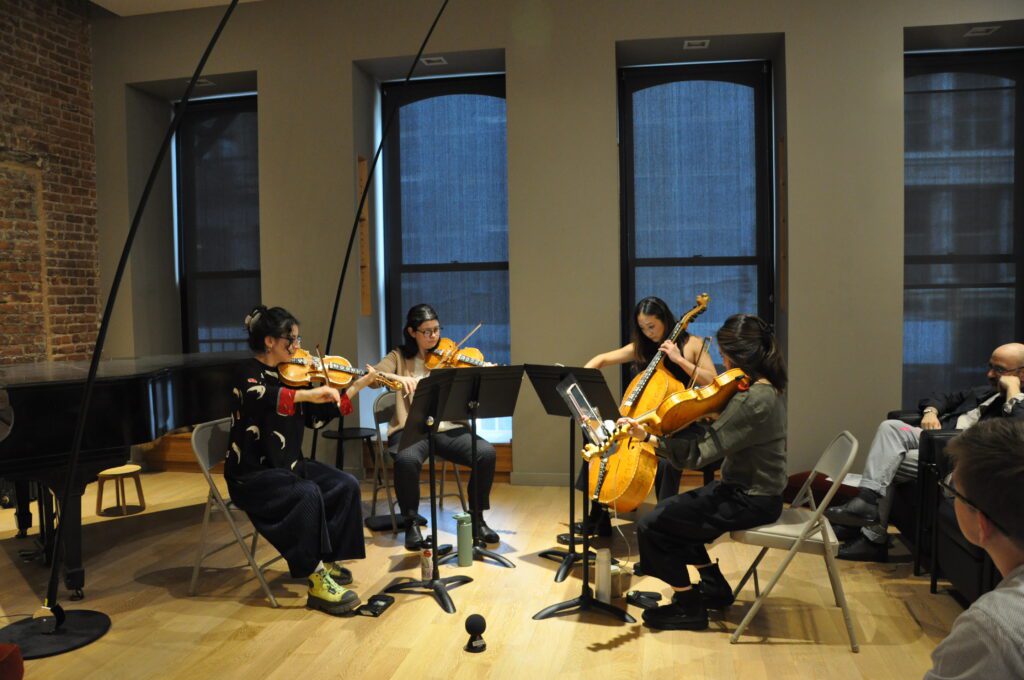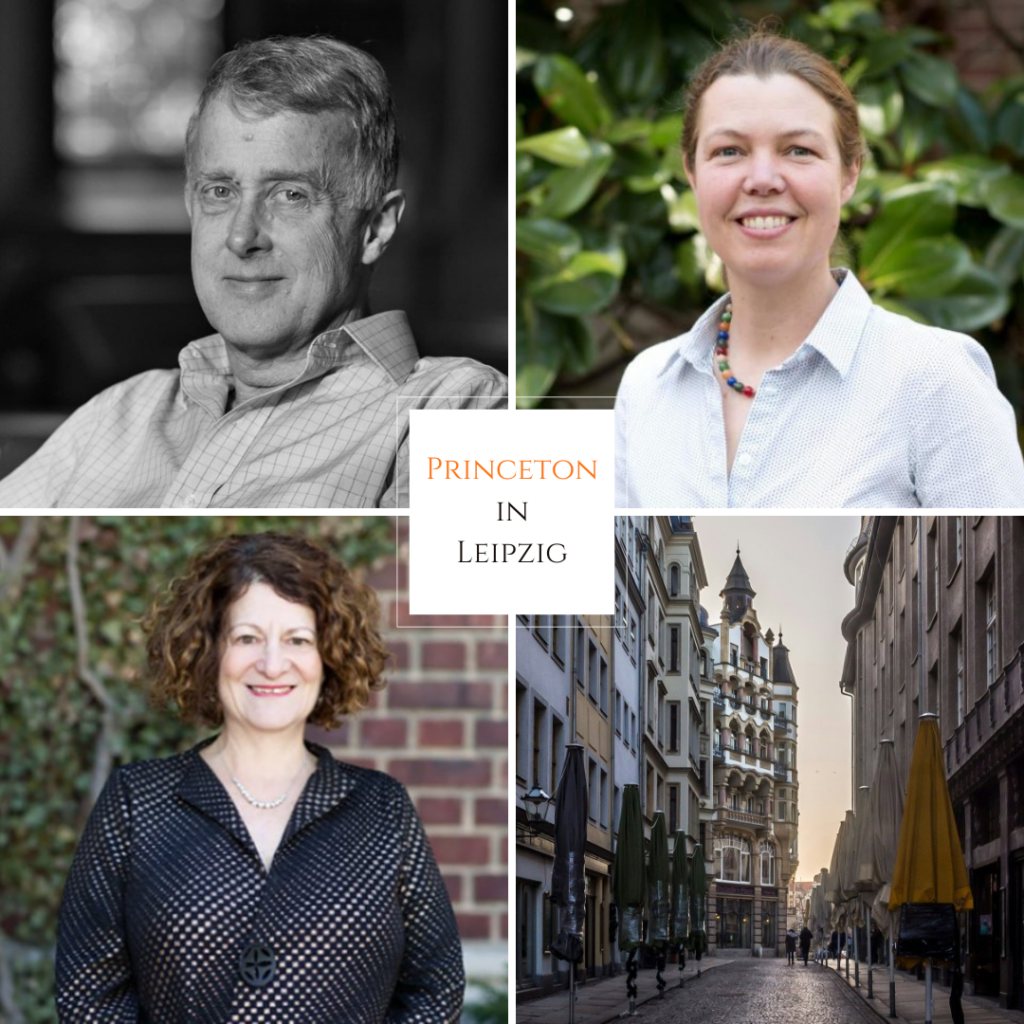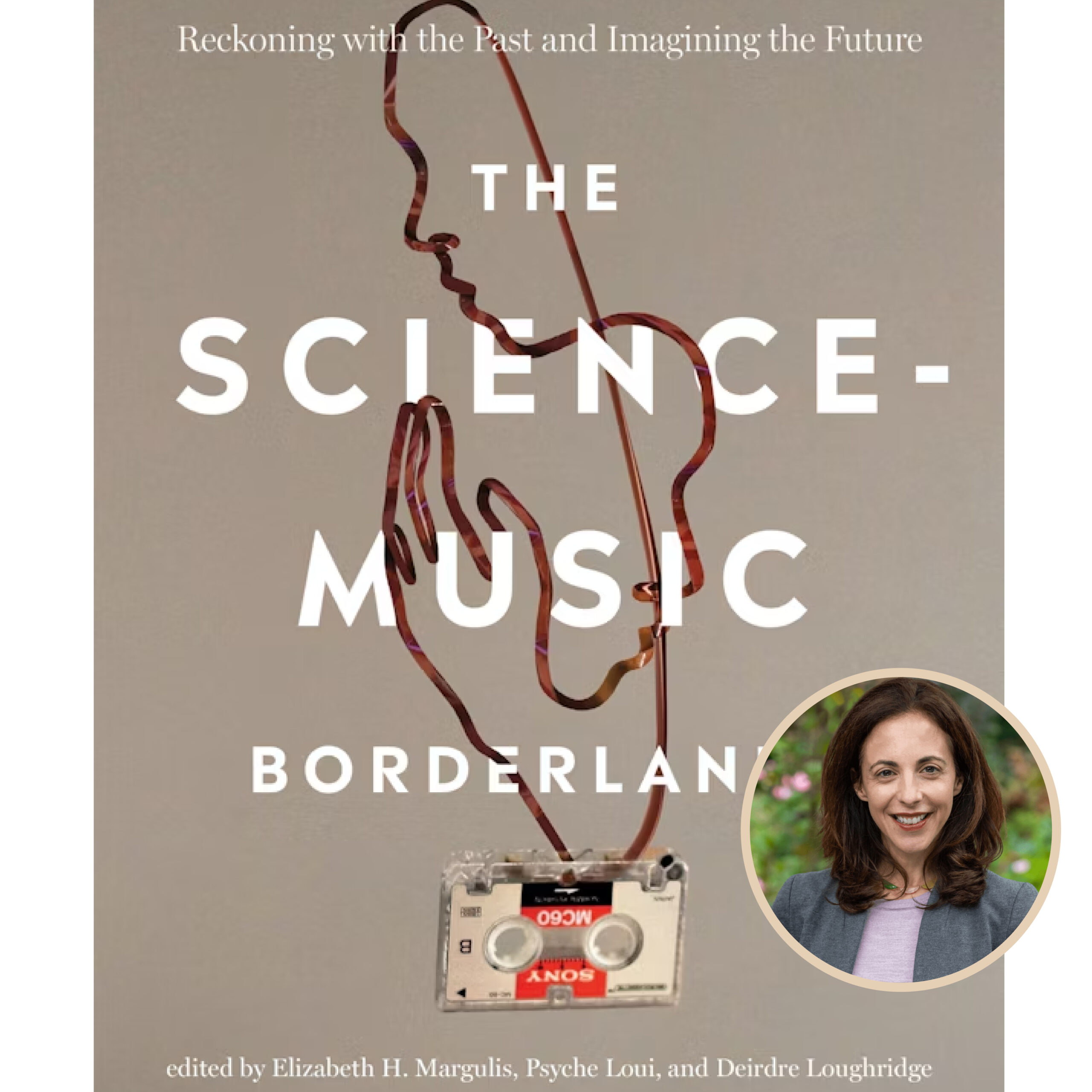The Department of Music is thrilled to congratulate musicology professor and Director of Graduate Studies Elizabeth Margulis, who has received the Ruth A. Solie Award for her editorial contributions to The Science-Music Borderlands: Reckoning with the Past and Imagining the Future. The Award is annually bestowed by the American Musicology Society in recognition of a collection of musicology essays of exceptional merit. In a recent news announcement, the AMS award committee praised the collection’s ambitions to “transcend siloed humanistic and scientific approaches to musical inquiry.”
Professor Margulis’ work on The Science-Music Borderlands grows out of her own research in the perception and cognition of music. At Princeton, Professor Margulis established the Music Cognition Lab, which emphasizes interdisciplinary collaboration between the humanities and the sciences. Earlier this fall, she also organized a workshop about music and the imagination in conjunction with the Department of Psychology.
In addition, Professor Margulis was recently bestowed a funding award for a new project titled “Sounds of Water: Mapping Multimodal Music-Evoked Imaginings through Citizen Space,” in collaboration with Dr. Mats Küssner at Humboldt University in Berlin. The award will provide project support throughout 2025 and 2026, and will continue to bolster Professor Margulis’ efforts to conduct interdisciplinary research in musicology.
The Department of Music sat down with Professor Margulis to hear more about her research goals and work on The Science-Music Borderlands.
How did you become interested in researching music cognition?
I grew up reading a lot of popular books on cognitive science, like Douglas Hofstadter’s Gödel, Escher, Bach, Marvin Minsky’s The Society of Mind, and Daniel Dennett’s Brainstorms. But for college, I decided to go all in on piano performance and enrolled at the Peabody Conservatory of Music. It wasn’t too long before I was disobeying my teacher and getting on the bus to take a class at Johns Hopkins called Minds, Brains and Computers instead of practicing. Making that illicit bus trip back and forth between campuses helped me see that they didn’t have to be two separate worlds. Some of the approaches I was learning about in cognitive science could be used to answer interesting questions about music.
Could you share a bit about your research and work on The Science-Music Borderlands? What were the primary questions or concerns that you wanted to explore with your interlocutors in this book?
People in music cognition are trying to use scientific tools to make sense of a cultural phenomenon. You can’t do this properly without a rigorous understanding of the tools, but you also can’t do it properly without a textured understanding of culture. That’s a lot to take on, so it’s easy to miss something on one side or the other and end up with research that is less robust than you might have hoped. With this volume, we wanted to steward conversations of people with various kinds of expertise to create a kind of one-stop shop for folks trying to work at this intersection. All the contributors wrote drafts of their chapters and brought them to a workshop with the other authors. Someone in a different field served as respondent, and groups of authors worked together to make sure each chapter integrated insights from multiple areas. The result, we hope, is a book with a consistent through-line, where chapters feel like they are in conversation with each other, not just next door to each other.
Your work aims to bring together “sensitive humanistic insights” and scientific methods in psychology and neuroscience. Why is cross-disciplinary collaboration important for music in particular? What do you think the humanities and sciences stand to learn from one another?
We can’t do good work in music cognition without understanding both perspectives! The humanities offer more sensitive accounts of music’s place within culture and history; science can offer a certain pragmatism and set of techniques for answering questions. But scientific approaches risk being reductive and misleading if the humanistic side isn’t incorporated into study design.
What’s next for you and your research? What questions are you hoping to explore in the future?
In recent work, we’ve discovered an intriguing link between perception and the imagination. Daydreams that feel quite spontaneous and personal can actually be closely cued by music, such that both your and my minds might be wandering someplace similar while listening! Because of its unconstrained nature, spontaneous thought has generally been difficult to study experimentally. Music provides a way in, allowing us to learn more about the mechanisms that underlie our capacity to remember and imagine.
In Other News

Resonant Revival: How a Norwegian Folk Fiddle Found a New Voice at Princeton
May 19, 2025
Dan Trueman, Chair of the Music Department, introduces Norwegian folk instruments to a new generation of composers and performers.

Announcing the Launch of Princeton in Leipzig
Jan 7, 2025
Enrollment in “Princeton in Leipzig” has been extended to March 2, 2025! The Princeton Music Department is excited to announce the launch of Princeton in Leipzig, a summer study abroad …

Gavin Steingo Named 2024-25 Getty Research Institute Scholar
Jun 28, 2024
The Department of Music is excited to announce that Gavin Steingo, Professor of Music and Director of Undergraduate Studies, received a prestigious year-long fellowship at the Getty Research Institute (GRI) in …

